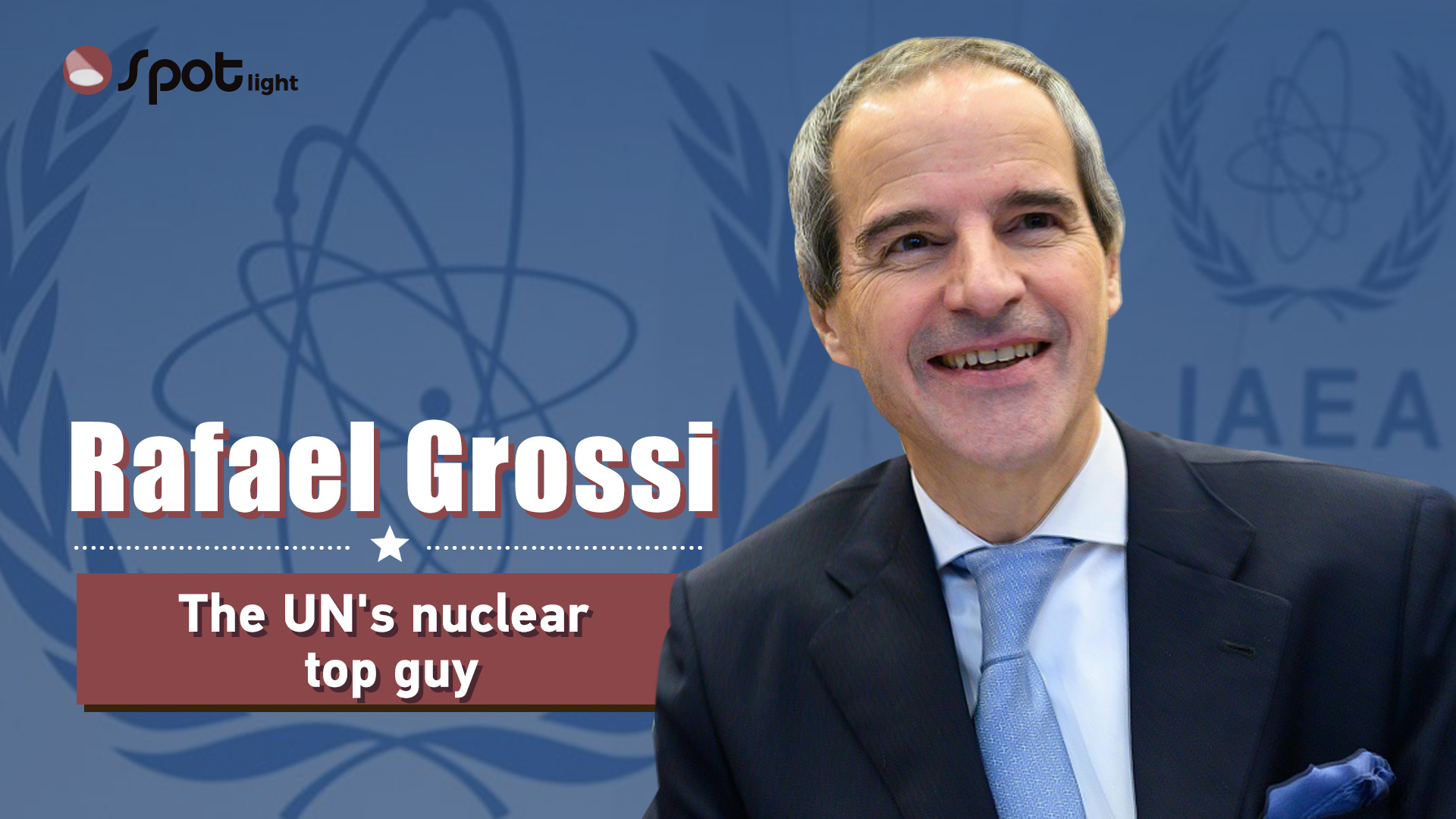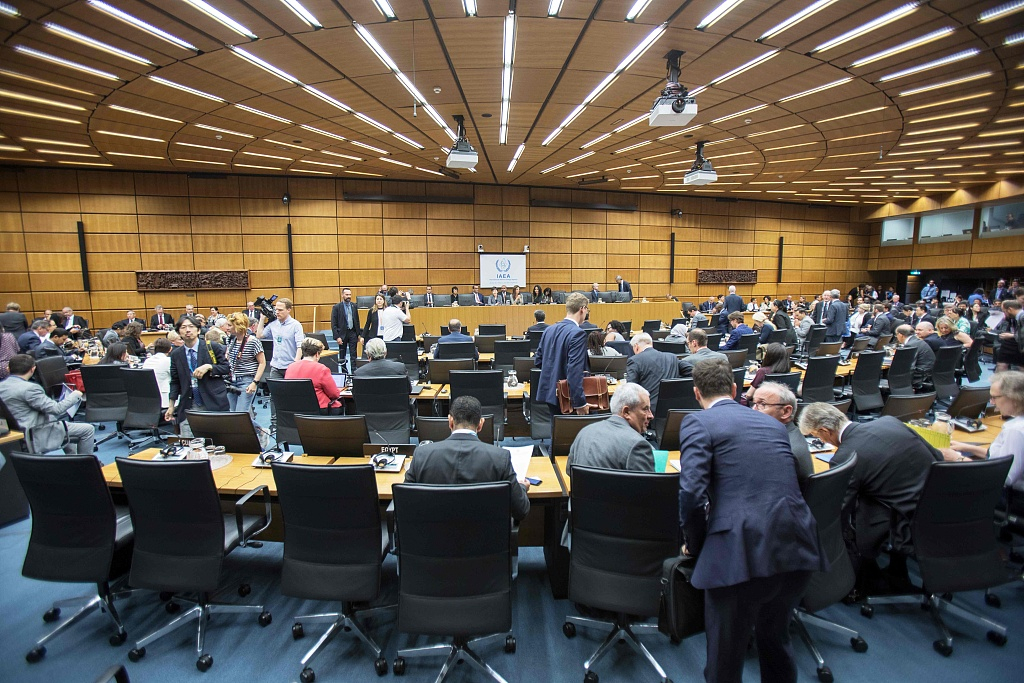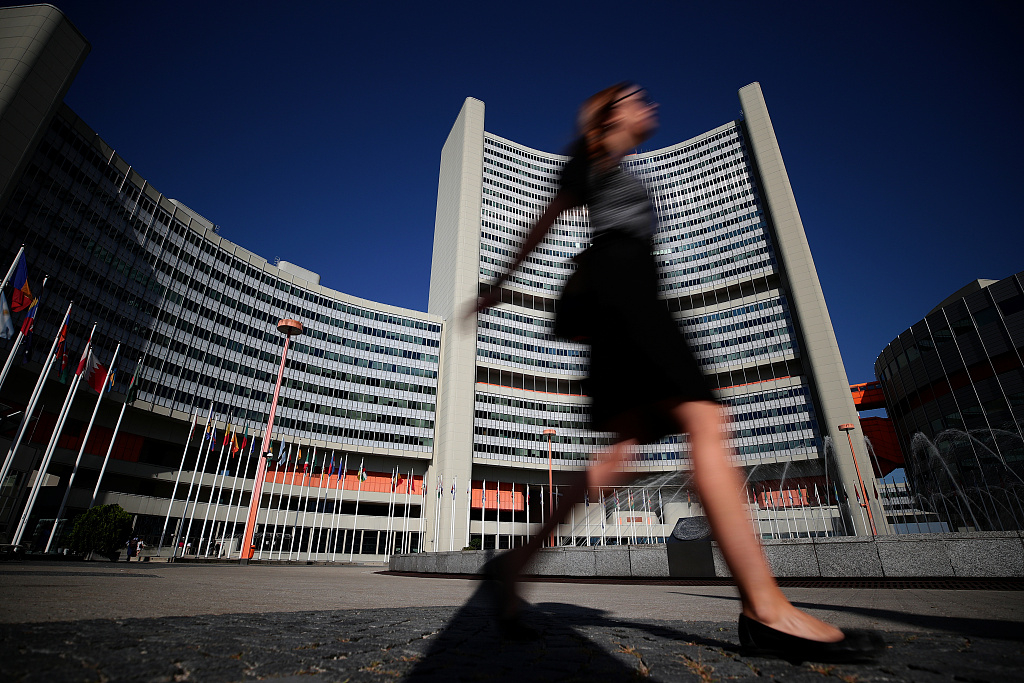
After a few years away from the headlines, the International Atomic Energy Agency (IAEA), the UN's nuclear watchdog, is getting renewed attention as the dispute over Iran's nuclear program heats up again.
And to oversee the simmering situation, it has a new guy in charge: Argentinian diplomat Rafael Mariano Grossi.
Focus on Iran
Grossi was appointed in October as the IAEA's sixth director-general, following the death in July of long-time chief Yukiya Amano.
Previously Argentina's ambassador to Austria and international organizations in Vienna, including the IAEA, the 58-year-old Grossi made a career in non-proliferation, holding top posts at the Organization for the Prohibition of Chemical Weapons (OPCW) and the IAEA, and serving as president of the Nuclear Suppliers' Group from 2014 to 2016.
He was also Argentina's representative to NATO and did diplomatic stints in Belgium and Luxembourg.
But he steps into the IAEA's top job at a time of renewed tensions over Iran.
After a few years of relative quiet on that front, following a landmark deal struck with world powers in 2015, the U.S. decision to pull out of the agreement has sparked a new torrent of aggressive rhetoric on both sides.
Read more: What is the Iran nuclear deal?
The U.S. has moved to reimpose severe economic sanctions on Iran, which it accuses of trying to build an atomic bomb, and President Donald Trump went as far as to threaten Iran with "obliteration" over the summer.

Members of the IAEA's board of governors attend a special meeting following the death of Director-General Yukiya Amano, in Vienna, Austria, July 25, 2019. /VCG Photo
Members of the IAEA's board of governors attend a special meeting following the death of Director-General Yukiya Amano, in Vienna, Austria, July 25, 2019. /VCG Photo
Tehran, although it insists it is not seeking nuclear weapons, retaliated by announcing that it would begin enriching uranium above levels agreed in the 2015 Joint Comprehensive Plan of Action (JCPOA).
Iranian parliament speaker Ali Larijani took things further over the weekend, warning that Iran may "seriously reconsider some of its commitments" to the IAEA.
The 2015 deal was between Iran and the so-called P5+1 countries – permanent UN Security Council members: the U.S., China, Russia, UK and France, plus Germany – but the IAEA and its nuclear inspectors were charged with overseeing Iran's compliance, putting the agency squarely at the middle of any new dispute.
'No one does what we do'
Addressing the IAEA's General Conference on Monday, on the eve of his taking office, Grossi made clear that impartiality would continue to be the agency's priority.
His predecessor Amano was closely involved in negotiations for the 2015 Iran deal, but remained a respected figure on all sides, with both Tehran and Washington commending his leadership and professionalism.
"The fact that the Agency is known to stick to the facts has immense value and gives us unique credibility. Countries recognize this. Not everyone always likes what we report. But the Agency cannot be accused of being politically biased or of lacking objectivity," Grossi said.
Thanks to the IAEA's work, "countries can have confidence that other nations are not secretly building nuclear weapons."
"No one else does what we do," he added, noting: "The world is safer because of the dedication and vigilance of our inspectors."

A woman walks past the United Nations headquarters in Vienna, Austria, July 25, 2019. /VCG Photo
A woman walks past the United Nations headquarters in Vienna, Austria, July 25, 2019. /VCG Photo
Tackling food, water and Zika
While nuclear verification remains the most high-profile part of its work, the IAEA's activities extend far beyond that: from promoting the safe use of nuclear power to using nuclear tools to address environmental problems, manage water resources, ensure food safety, fight cancer and prevent the spread of diseases like Zika, Ebola and malaria.
With developing countries especially reliant on technical cooperation in these areas, Grossi has vowed to take the agency "out of our comfort zone" to secure new sources of funding.
On the present climate emergency too, "the Agency's voice must be heard," he said on Monday.
Despite worries over the safety of nuclear plants following disasters such as the one at Fukushima, nuclear power is a clean source of energy that does not emit greenhouse gases, Grossi pointed out. He will travel next week to Madrid to take part in the COP25 climate conference and share the IAEA's position, he added.
Closer to home, the new "DG" has promised to make the agency "more agile and responsive" and its work "more efficient, transparent and understandable to everyone."
"Financial constraints should not lead us to passivity or paralysis. On the contrary, they should be a spur to creativity and imagination," Grossi urged.
If he gets his way, the IAEA could achieve absolute gender parity among its 2,500 staff for the first time. "It will be challenging, but it is not impossible," he said. At present, women make up about 30 percent of staff in the professional and higher categories of the organization.
Grossi now has four years to push through his plans. But if his predecessors are anything to go by, his tenure in a top office of the UN's Vienna headquarters could be much longer than that – of the IAEA's five directors-general since 1957, only one was replaced after a single term, while others stayed on as long as 20 years.